Salmon Meets Sweet & Tangy: Why Honey & Balsamic Vinegar Make the Ultimate Spice Pairing!
If you’ve ever stared at your pantry thinking, 'What in the world can I make tonight that won’t taste like every other fish dish?' — we’ve got a dynamic duo for you: honey and balsamic vinegar on salmon. It’s like a culinary Batman and Robin, except they solve flavor boredom instead of crime.
In this blog post, we’re diving deep into why this combo works so well, offering practical cooking tips, and even breaking down the food science behind it. Whether you're a pro chef or someone who's just learned to flip a fillet without launching it across the kitchen, this one’s for you.
Table of Contents
- Why This Combination Works
- The Science Behind the Flavor Magic
- Top 5 Tips for Perfect Honey & Balsamic Salmon
- Three Easy Recipes to Try Tonight
- Serving Suggestions & Wine Pairings
- Conclusion
Why This Combination Works
Let’s get real for a second: salmon is already delicious. It’s rich, buttery, and packed with omega-3s. But sometimes, you want more than “just good” — you want fireworks. That’s where the sweet-and-tangy magic of honey and balsamic vinegar comes in.
Honey adds a luscious sweetness that caramelizes beautifully when baked or grilled, while balsamic vinegar brings a bold, fruity acidity that cuts through the richness of the salmon like a knife through soft butter. Together, they balance each other out and elevate the dish from “meh” to “magnifique.”
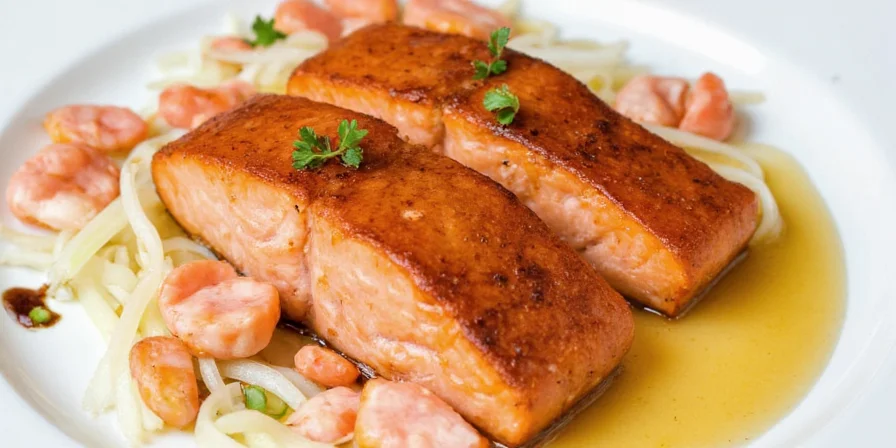
The Science Behind the Flavor Magic
Cooking isn’t just an art — it’s a chemistry experiment with better smells. Let’s talk about what happens when you combine these two ingredients with our favorite oily fish:
- Honey: A natural sugar (mostly fructose and glucose) that caramelizes at around 338°F (170°C), creating that beautiful golden glaze.
- Balsamic Vinegar: Contains acetic acid and natural sugars from aged grape must, giving it a unique tartness with a hint of sweetness.
- Salmon Fat: The high fat content helps absorb flavors and creates a silky mouthfeel that contrasts perfectly with the sticky glaze.
| Ingredient | Flavor Profile | Chemical Contribution |
|---|---|---|
| Honey | Sweet, floral, complex | Natural sugars, enzymes |
| Balsamic Vinegar | Tangy, fruity, slightly sweet | Acetic acid, aged grape must |
| Salmon | Rich, buttery, umami | Omega-3 fatty acids, proteins |
Together, they create a yin-yang flavor system where no single element overpowers the others. The sweet and sour notes dance together, while the salmon plays the perfect neutral partner.
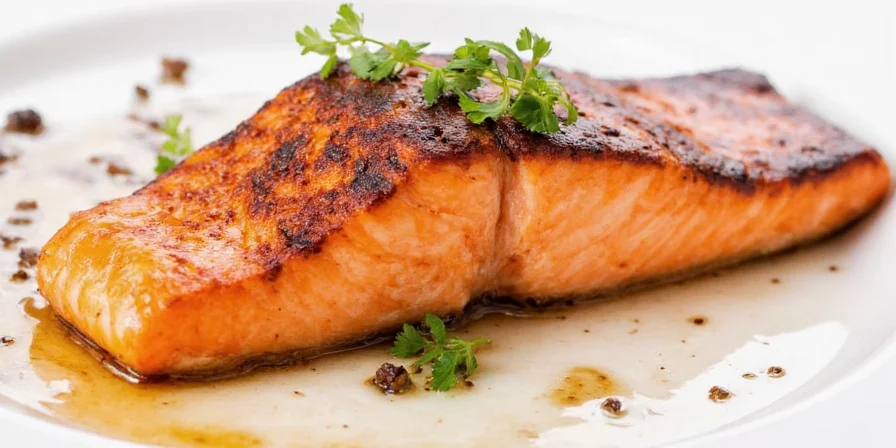
Top 5 Tips for Perfect Honey & Balsamic Salmon
- Use fresh wild-caught salmon if possible — it holds up better to strong flavors.
- Marinate for at least 30 minutes, but no more than 2 hours. Too long, and the acid starts “cooking” the fish (not what we want before it hits the pan).
- Brush glaze during last 5–7 minutes of cooking to avoid burning the sugars.
- Add a pinch of black pepper or chili flakes to give it a subtle kick — trust us.
- Finish with fresh herbs like dill, parsley, or chives to brighten the whole dish.
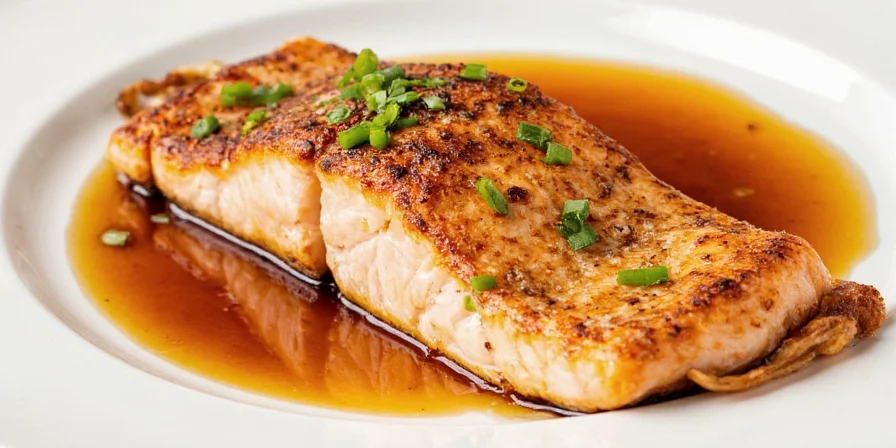
Three Easy Recipes to Try Tonight
Ready to roll up your sleeves? Here are three variations of the classic honey and balsamic salmon to suit your mood, time, and level of hunger.
1. Classic Glazed Salmon
- Ingredients:
- 4 salmon fillets
- 1/4 cup honey
- 2 tbsp balsamic vinegar
- 1 tsp olive oil
- Salt & pepper
- Instructions:
- Mix honey and balsamic in a bowl.
- Season salmon with salt, pepper, and oil.
- Marinate for 30 mins, then bake at 375°F (190°C) for 12–15 mins.
- Brush glaze halfway through and again at the end.
2. Asian-Inspired Twist
- Add 1 tbsp soy sauce and 1 tsp grated ginger to the marinade.
- Garnish with scallions and sesame seeds.
3. Mediterranean Style
- Stir in 1 clove minced garlic and 1 tsp dried oregano.
- Serve over couscous or quinoa with cherry tomatoes and olives.
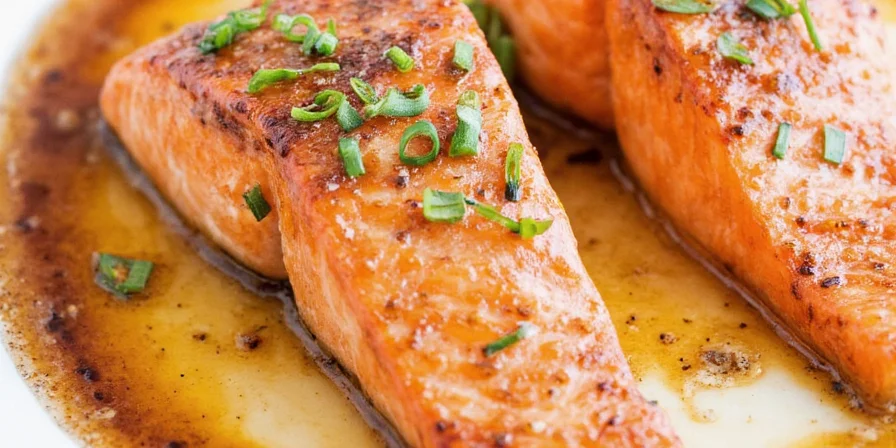
Serving Suggestions & Wine Pairings
Pairing the right side dish or wine can take your salmon from great to legendary. Here’s what we recommend:
- Sides:
- Roasted asparagus
- Garlic mashed potatoes
- Quinoa salad with citrus dressing
- Wines:
- Pinot Noir – Earthy and balanced
- Chardonnay – Creamy and complementary
- Dry Rosé – Bright and refreshing
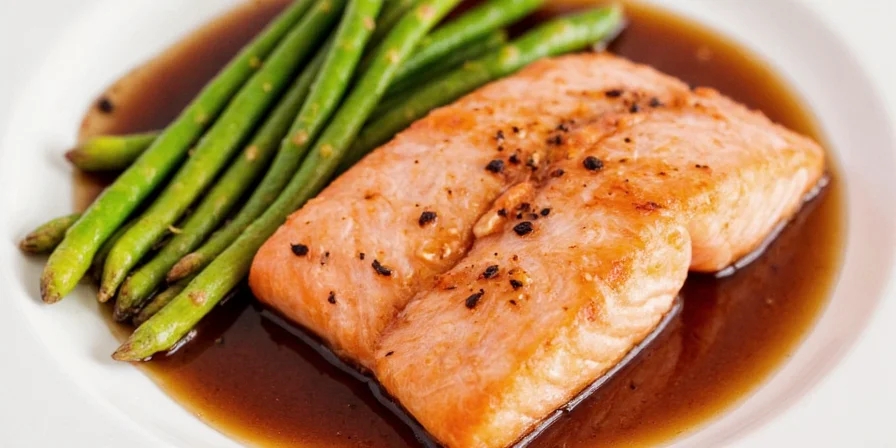
Conclusion
The pairing of honey and balsamic vinegar with salmon isn’t just a happy accident — it’s a scientifically sound flavor harmony that deserves a regular spot in your meal rotation. With its balance of sweet, tangy, and savory notes, it’s a versatile, crowd-pleasing combination that can be dressed up or kept casual.
Whether you're hosting a dinner party or trying to jazz up your weekday dinners, this innovative spice pairing offers both flavor depth and simplicity. So grab your bottle of balsamic and that jar of honey, and let your salmon shine like never before.
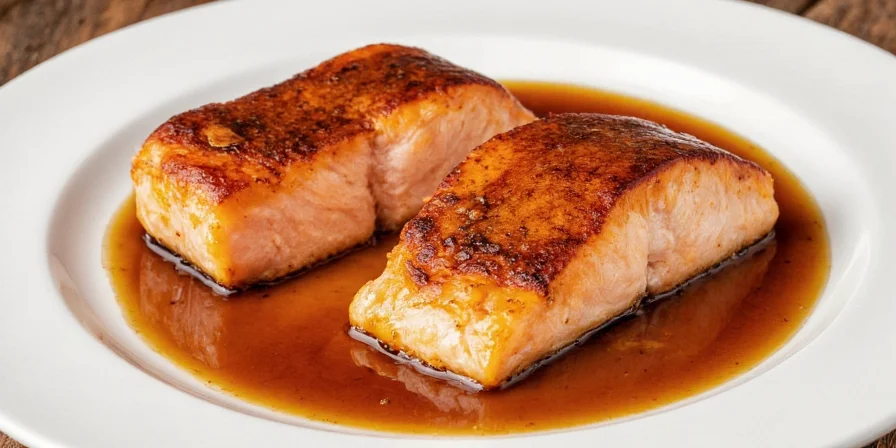
Want more creative spice pairings? Stay tuned for our next article on chocolate and chili in savory dishes — yes, really.

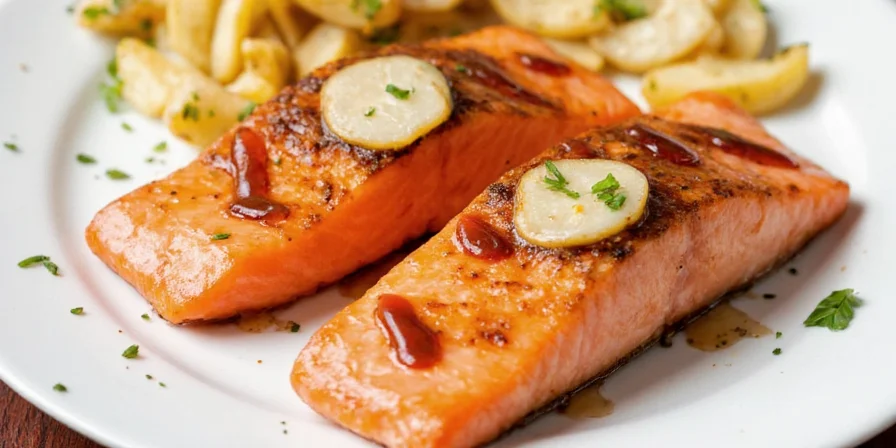









 浙公网安备
33010002000092号
浙公网安备
33010002000092号 浙B2-20120091-4
浙B2-20120091-4